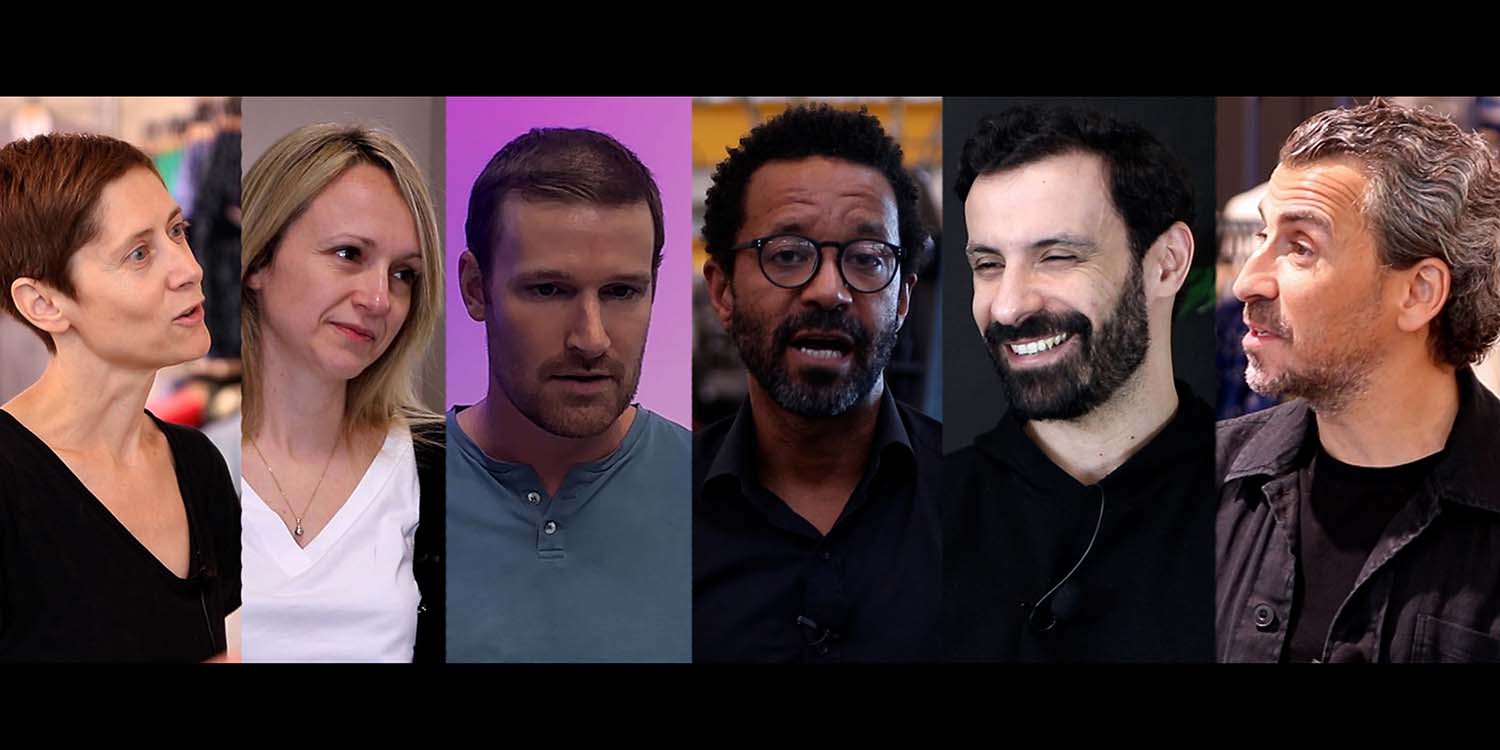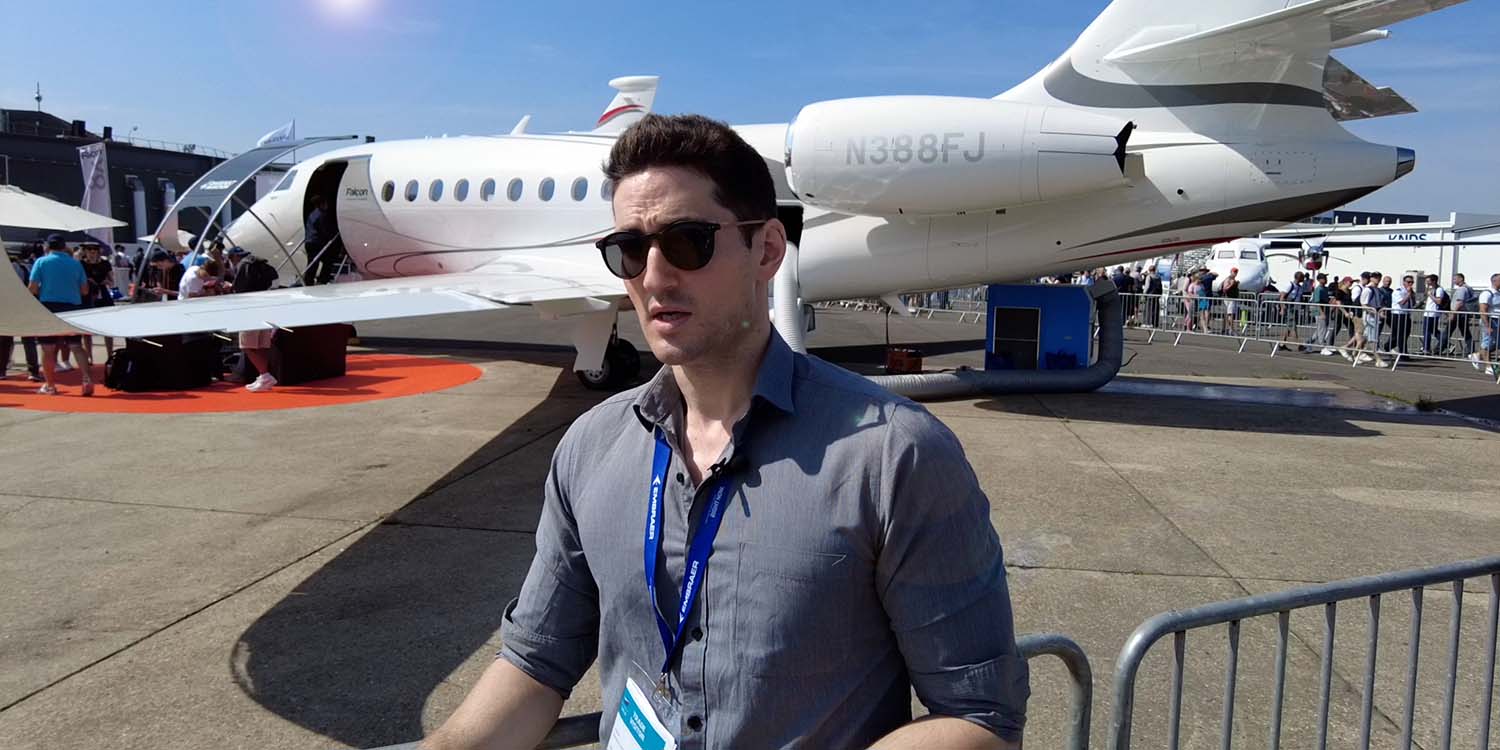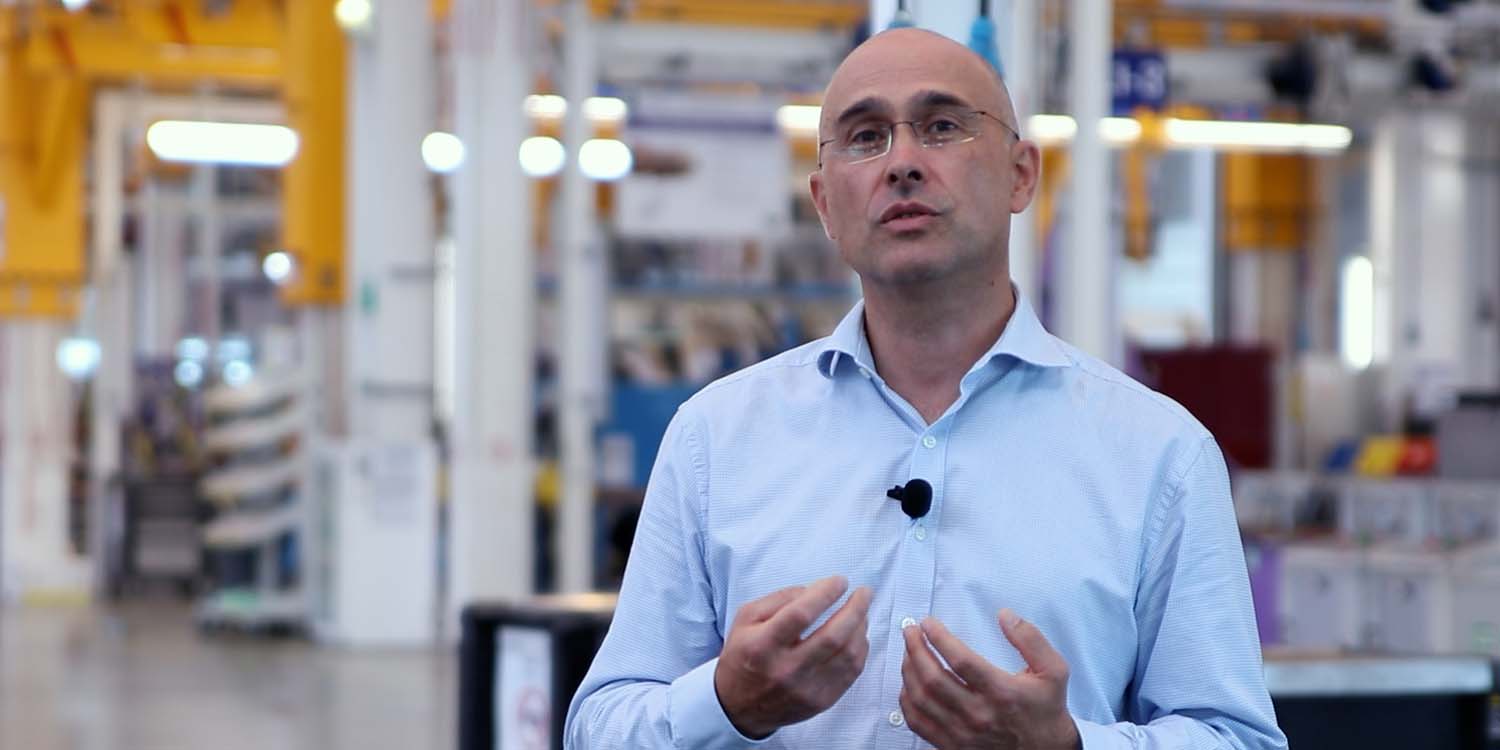00:00:00 Introduction of speakers
00:00:26 Ricardo’s role and MRO Holdings’ operations
00:01:47 Supply chain challenges and MRO’s vision
00:03:31 Risk management and demand forecasting
00:05:23 Emerging trends and MRO’s approach
00:07:34 MRO types comparison
00:09:19 Memorial Holding’s OPS and industry challenges
00:10:24 Ricardo’s transition and Lokad’s partnership
00:11:37 Sector comparison and quantitative benefits
00:13:05 Ricardo’s hiring and leading supply chain
00:14:23 Common failures and leadership expertise
00:15:03 Closing remarks and gratitude to Lokad
Summary
In a recent dialogue, Ricardo Alvarez Henao, Supply Chain Director at MRO Holdings, shared insights on the aviation MRO sector with Luciano Lisiotti of Lokad. Alvarez Henao emphasized the importance of anticipation and visibility in supply chain risk management, noting that inaccurate forecasts could lead to operational delays or surplus inventory. He also highlighted emerging trends in the MRO industry, including a post-pandemic bounce back, a trend towards partnerships, and the increasing complexity of demand. Alvarez Henao stressed the importance of embracing volatility and complexity, and the usefulness of probabilistic demand planning and forecasting. He concluded that while the MRO sector is more complex than the fast-moving consumer goods sector, the principles of leading a supply chain are similar.
Extended Summary
In a recent conversation between Luciano Lisiotti, a Sales Account Executive at Lokad, and Ricardo Alvarez Henao, the Supply Chain Director at MRO Holdings, a wealth of insights were shared about the aviation MRO sector and the challenges and opportunities it presents. MRO Holdings, a heavyweight in the aviation maintenance industry, services major airlines across America, delivering over 1000 aircraft checks annually and placing over 150,000 purchase orders for parts. The company’s vision is to ensure the right parts are in the right place at the right time and at the right price, a strategy aimed at exceeding customer expectations and driving profitable growth.
When asked about risk management in the supply chain, Alvarez Henao emphasized the importance of anticipation and visibility, particularly in demand planning and forecasting. He noted that inaccurate forecasts could lead to operational delays or surplus inventory, which could negatively impact the company’s financial performance.
Alvarez Henao also touched on the emerging trends in the MRO industry. He noted that the industry is bouncing back post-pandemic, with companies that can leverage scale emerging as the winners. He also observed a growing trend towards partnerships and large agreements. Balanced growth in revenues, profit and loss, and cash is crucial, and the complexity of demand is increasing. Companies that can effectively manage this complexity will have a competitive edge.
Lisiotti then steered the conversation towards the differences between a standalone MRO service company and an MRO associated with an airline company. Alvarez Henao explained that while an independent MRO company must deliver profit and be efficient, an MRO that is part of an airline is a support area and doesn’t face the same pressure to be a profit center. They also have different logistics needs and business models.
On the topic of managing volatility across MRO Holdings, Alvarez Henao stressed the importance of embracing volatility and complexity. He highlighted the usefulness of probabilistic demand planning and forecasting as a tool for managing these challenges.
When asked about the differences and similarities between the fast-moving consumer goods sector and the MRO sector, Alvarez Henao noted that while the MRO sector is much more complex, the principles of leading a supply chain are similar in both sectors. Understanding the core business and providing direction to the supply chain team to support that business is key in both sectors.
The conversation concluded with Lisiotti expressing his gratitude to Alvarez Henao for his time and insights, and both parties looking forward to future discussions. This conversation provided a deep dive into the intricacies of the MRO sector, highlighting the importance of effective supply chain management, the ability to navigate complexity, and the need for accurate demand forecasting in driving success in this industry.
Full Transcript
Ricardo Alvarez Henao: Hi, everyone. I am Ricardo Alvarez Henao. I lead the corporate supply chain team at MRO Holdings. Our headquarters are based in Dallas and El Salvador. Today, we are in El Salvador.
Luciano Lisiotti: Ricardo, my idea for today is just to have a quick conversation. My first question is, what is the biggest challenge you have faced in your role as the supply chain BP in the aeronautical sector?
Ricardo Alvarez Henao: Before answering your question, let me provide a little bit of context for the company because I think it is very important. We are a heavy maintenance company for the aviation industry, meaning that we provide heavy maintenance services to the big airlines in America. I would say we are the biggest specialized heavy maintenance company now in the Americas. We have four operations, our biggest operation is in El Salvador. We have two operations in the US and one operation in Mexico. Just to give you some context of the complexity, we work with 17 different customers. I’m talking about the big players of the commercial aviation industry in the Americas. We deliver more than 1000 aircraft checks per year, which is huge. You can imagine the challenge for us is around placing more than 150,000 purchase orders to bring parts for our day-to-day operation. To give you an idea of the complexity, we have more than 70,000 SKUs or part numbers, as we call it in the aviation industry. So, the challenges are huge, Luciano.
I would summarize that also with our vision in the supply chain at MROH which is to have the right parts at the right place at the right time with the right price. So if we comply with that, we are delivering what we really need. We also have a recently renewed and updated vision for 2025 which is to be a synchronized supply chain which consistently exceeds the performance and expectations from our customers to deliver profitable growth. We are a high-performance multicultural team which attracts, develops and retains the best talent and we leverage on robust processes and technologies while continuously improving to deliver the present while shaping the future.
Luciano Lisiotti: Those challenges sound quite interesting. How do you manage the risk in your supply chain?
Ricardo Alvarez Henao: I would say that the secret recipe would be anticipating everything and trying to improve visibility. Any information before anything happens is gold for us. So anticipating, getting visibility and advice for everything is crucial. Let’s talk specifically about the area where you guys are helping us a lot, which is the demand planning and the forecasting. For us, it is critical to anticipate or predict everything related to demand forecasting. One of the big risks that we have is that if we don’t have a right forecast or we don’t make the right decisions for building up our inventories, we can either impact the operation and delay the throughput or end up with a surplus of inventory that we don’t need and therefore impacting all the financials for the company.
Luciano Lisiotti: You’re talking about demand planning. What can you say about the emerging trends that are coming?
Ricardo Alvarez Henao: The first trend I would say is that after the pandemic, the aviation industry is recovering. The latest figures are showing that we are at the same levels that we were in 2019 which is great. So it comes with huge challenges for us. Specifically, what we see in terms of trends for this MRO industry, is that who is really leveraging on a scale is winning. We see that playing with big players, big partners, creating partnerships like large agreements is the way for leveraging on a scale and delivering benefits to our customers. This is one trend that we are tackling by doing exactly that. We are having a conversation closing agreements with big partners in the industry, OEMs. Another trend that I would mention is, well, this is an industry that, as I mentioned, it has to have a balanced growth on revenues, P&L and cash, very important. So this is the trend for any MRO that aims to survive, we need to have a balanced growth and this is another trend. And last but not least, demand complexity, we see it growing. We are receiving other customers and other fleets, the aircrafts in different condition with different ages. So complexity is becoming critical for us. So if an MRO can deal and better deal with that complexity, well that MRO and this is us, we will have a competitive advantage in the market.
Luciano Lisiotti: In the beginning, you said that you’re a pure MRO company. So what are the main differences you can foresee in being a pure MRO service company compared to an MRO associated with an airline company?
Ricardo Alvarez Henao: In fact, we are very different businesses and very different companies. We are both MRO, however, an isolated MRO heavy maintenance company not being part of an airline, must deliver profit, needs to be very efficient. This is the core business for an isolated MRO company, for an MRO as part of an airline, this is not the core business for the aviation company. The core business is the aviation itself, the commercial aviation and they have the MRO as a support area that doesn’t have that spotlight or pressure for becoming a profit center. It needs to be efficient, productive, but we operate as an isolated company for making an MRO business profitable and sustainable. So it is very different. They also leverage on some scales or some benefits that they have as airlines in terms of moving parts in their own fleets. We need to be very efficient at the logistics side because we don’t have those fleets serving us. So really when you start adding those differences, you end up with very different business models, sources of profits and ways to handle the business.
Luciano Lisiotti: I know that MRO Holdings has different operations, each one with its differences. How do you manage the volatility all across MRO Holdings and how do you foresee the best way to handle those?
Ricardo Alvarez Henao: By the way, this is one of the biggest challenges that we have. Volatility and complexity in this industry is absolutely a huge challenge. Let me tell you something from my previous life in another company. I was working for a consumer goods company and when I was there leading the supply chain area, we were looking for a partner to help us deal with the complexity and volatility of the demand and use some probabilistic approaches and tools for building a better scenario. Unfortunately, I left the company and we didn’t find that partner back then. When I arrived at MRO Holdings, I was surprised to find that Lokad was already a partner for MROH and you were working exactly on the concept and putting into practice what is the probabilistic demand in forecasting. This is really the way for coping and embracing the volatility and the complexity. What I tell my team is, we can’t complain about volatility, we can’t complain about complexity. Complexity and volatility are here and will be here and will increase with time. So we need to have the right tools and the right processes for dealing with that complexity and volatility and I would say probabilistic demand planning and forecasting is one of those great tools.
Luciano Lisiotti: Wow, this was a good answer. This is something that I have a hard time explaining to potential customers. You know, as a commercial guy, I try to explain why this particular vision can help them see the problem and frame the problem from a different angle. And also, as you just said, you come from a different sector, the fast-moving consumer goods, and now in the MRO and I’m pretty sure you can see some differences and some similarities. Which for you will be the best way to explain to either one of those sectors why this particular vision on quantitative supply chain can help them make better decisions rather than focusing on the forecast?
Ricardo Alvarez Henao: Huge difference, a big learning for me. Well, I just mentioned during the conversation the amount of complexity. I thought working in consumer goods that having 300 SKUs was a pain and now with thousands and thousands, I realize that there’s no such complexity for a business like this. So this is one of the big differences. But I would like more to emphasize the similarities because I was brought to MRO Holdings without knowing about aviation, without having experience at all in aviation. I was hired for leading the corporate supply chain in an aviation company and I thought they’re crazy. They haven’t read my resume. They haven’t read my CV and they’re hiring the wrong Ricardo Alvarez Henao. There must be a Ricardo Alvarez Henao around with experience in aviation and that’s not me. But then I realized and now I’m connecting the dots. Let me tell you why because leading a supply chain, and this is the similarities with consumer goods, leading a supply chain. First, you need to be very clear on the business model, very clear on the business needs. And then as a supply chain leader, you need to make sure that you are really leading the supply chain team in the supply chain organization to support the core of the business. In this case, the core business is heavy maintenance. So what is needed for that business need. And then we go and provide what can be provided, what can be done. And knowing the business, understanding the core of the business and providing the direction to the supply chain team to deliver those business needs is really very similar to consumer goods. But this is where sometimes supply chain fails because we try or supply chain practitioners try to build their own kingdom trying to get the spotlight or be the ones that are delivering the results. And this is not the business. The core of the business is the one producing the profits, the benefits and we are here to support. So those are the similarities. And by being a leader and surrounded by expert people, I have been able to build my business acumen and honestly have been able to really give my contribution to the company.
Luciano Lisiotti: Ricardo, thank you so much for your time today. It was a pleasure to have this conversation live here in Salvador. I’m really looking forward to having another one soon, hopefully in Paris.
Ricardo Alvarez Henao: Well, thanks so much everyone at Lokad and hope to see you in the next edition.


